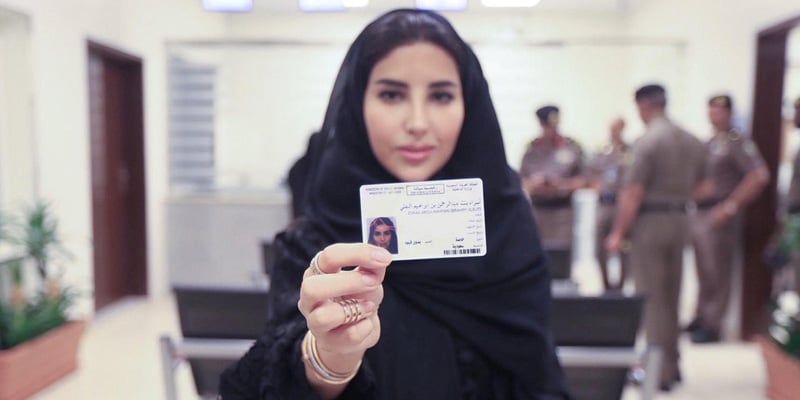The historic day is here at last.
Headlines were made around the world last September when Saudi Arabia announced the end of its ban on women driving, and now, women in the kingdom can legally get behind the wheel.
The ban — which had been in place since 1957 — ended at midnight as the calendar turned over to June 24.
Read:
Saudi Arabia has just ruled that women will be allowed to drive
The first Saudi women have been issued their driving licences
And women began driving then and there, AFP reported, with some blasting music as they made their first journeys.
TV personality and writer Samar Almogren told the news agency, “I always knew this day would come. But it came fast. Sudden… I feel free like a bird.”
The moment was a symbol of the new Saudi Arabia, sustainability expert and TV host Muna AbuSulayman said on Twitter.
A historic moment that symbolizes the #New #Saudi and its #Vision2030 in action …
Thank yous to everyone who made this possible…
New chapter is about to be written…#SaudiWomenDriving #SaudiArabian #LookAtMeNow#تستحقينها pic.twitter.com/ueiBHfrHxw— Muna AbuSulayman منى (@abusulayman) June 23, 2018
Earlier in June, the first Saudi women were issued their driving licences.
Driving represents independence and having a choice, says newly licenced Reema Jawdat in a statement from the Saudi Ministry of Information at the time.
“I have 12 years of driving experience in Lebanon, Switzerland, and the United States. It’s a dream come true that I am about to drive in the kingdom. The moment I got the news about driving was unbelievable for me,” Jawdat said.
University assistant professor Tahani Aldosemani adds that driving isn’t just about getting from A to B.
“Driving for women is not just about driving a car; it enhances strength of character, self-confidence, and decision-making skills. It also instills a sense of responsibility for yourself, your vehicle, the road, and the people around you, not to mention the economic and social dimensions of driving,” she added.
Resurrecting my celebratory tweet from the day the royal decree was issued. From today, #SaudiWomenCanDrive. Don’t allow anyone to downplay the significance of this moment in OUR history. The road towards equality & empowerment is long & bumpy, but we are finally on it. Mabrook! https://t.co/SkOtQDEgeq
— Sara Althari | سارة الثاري (@SaraTee77) June 23, 2018
Activist Manal Al Sharif, who was jailed in 2011 for driving in public, welcomed the landmark ruling last September, saying “Saudi Arabia will never be the same again”.
Saudi’s ambassador to the US, Prince Khaled bin Salman, also heralded the milestone, calling it “a historic and big day” and “the right decision at the right time”, according to the BBC.
“I think our leadership understands our society is ready,” the ambassador told The Guardian when the ban was lifted, adding that women will not need a male guardian in the vehicle when they drive.
The reform comes as part of the kingdom’s ambitious Vision 2030, a post-oil economy plan under which the government aims to increase the percentage of women in the nation’s workforce from 23 per cent to 28 per cent by 2020.
(And now that women won’t need to hire male drivers to transport them to work, this goal looks even more feasible).
King Salman’s decree is just the latest in Saudi’s changing shift in women’s opportunities in recent times.
This year, more Saudi females have been appointed to top jobs, a royal directive allowed women to use certain government services without a male guardian’s consent, and recent approval was issued for the go-ahead of women’s gyms.
Images: Instagram











